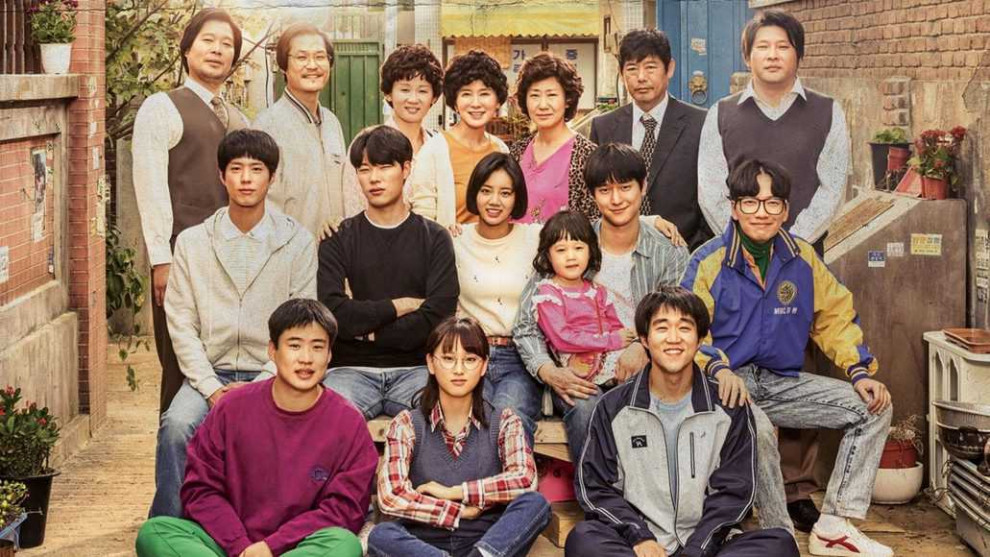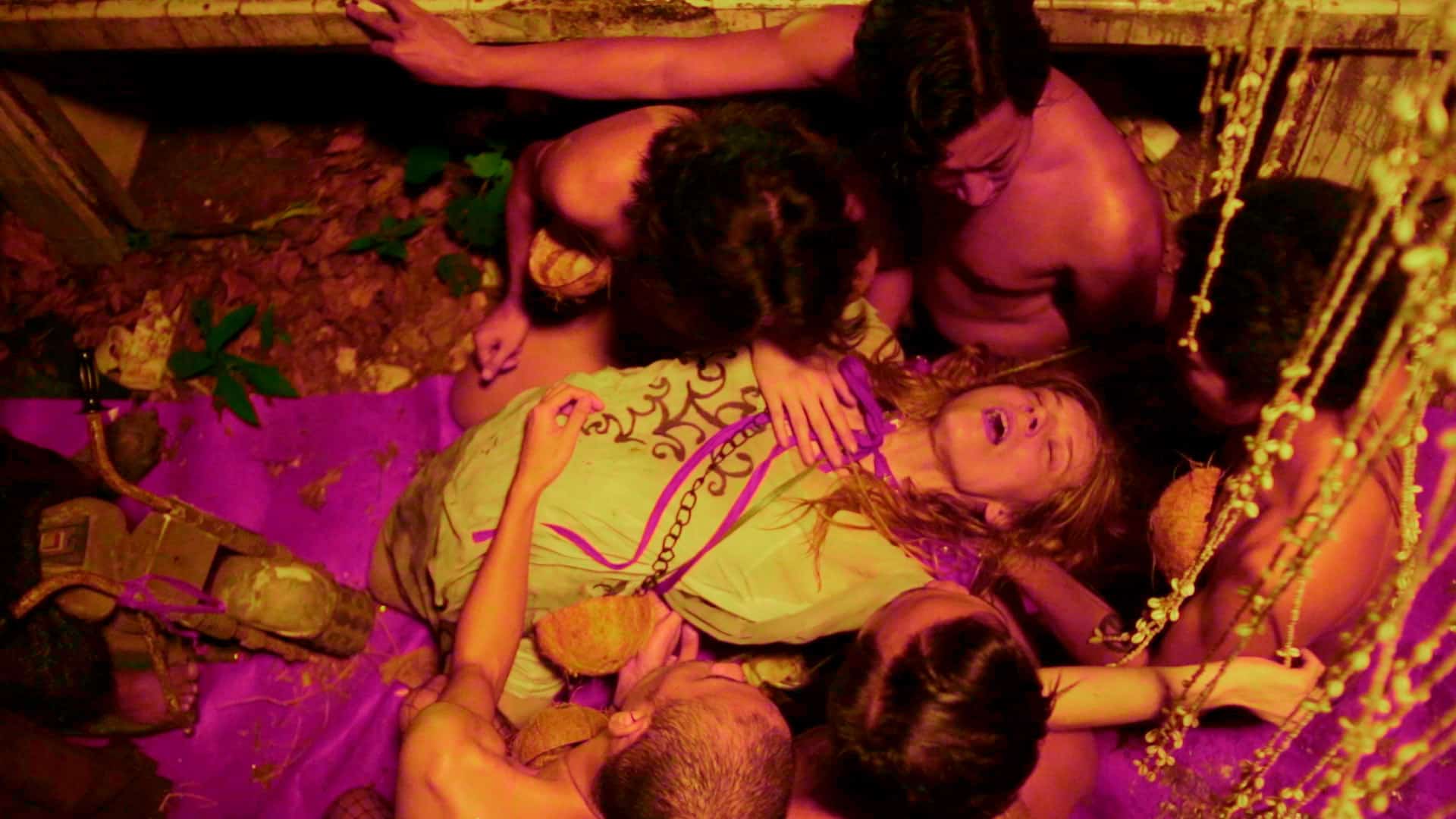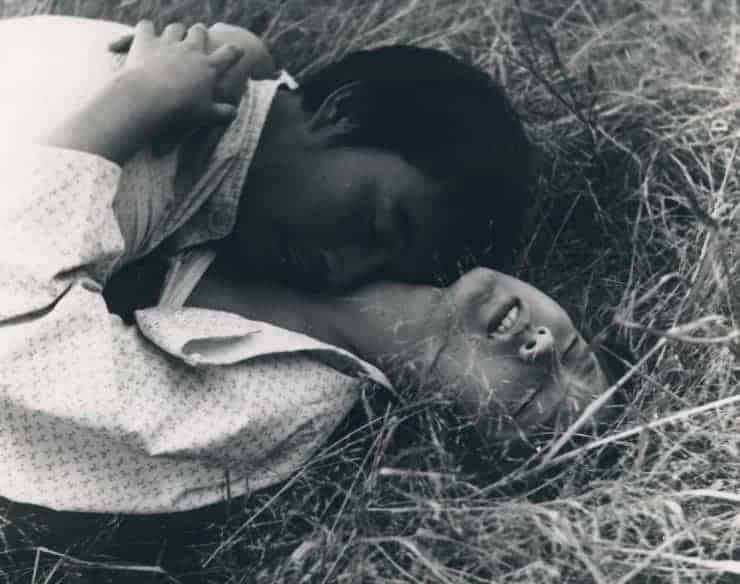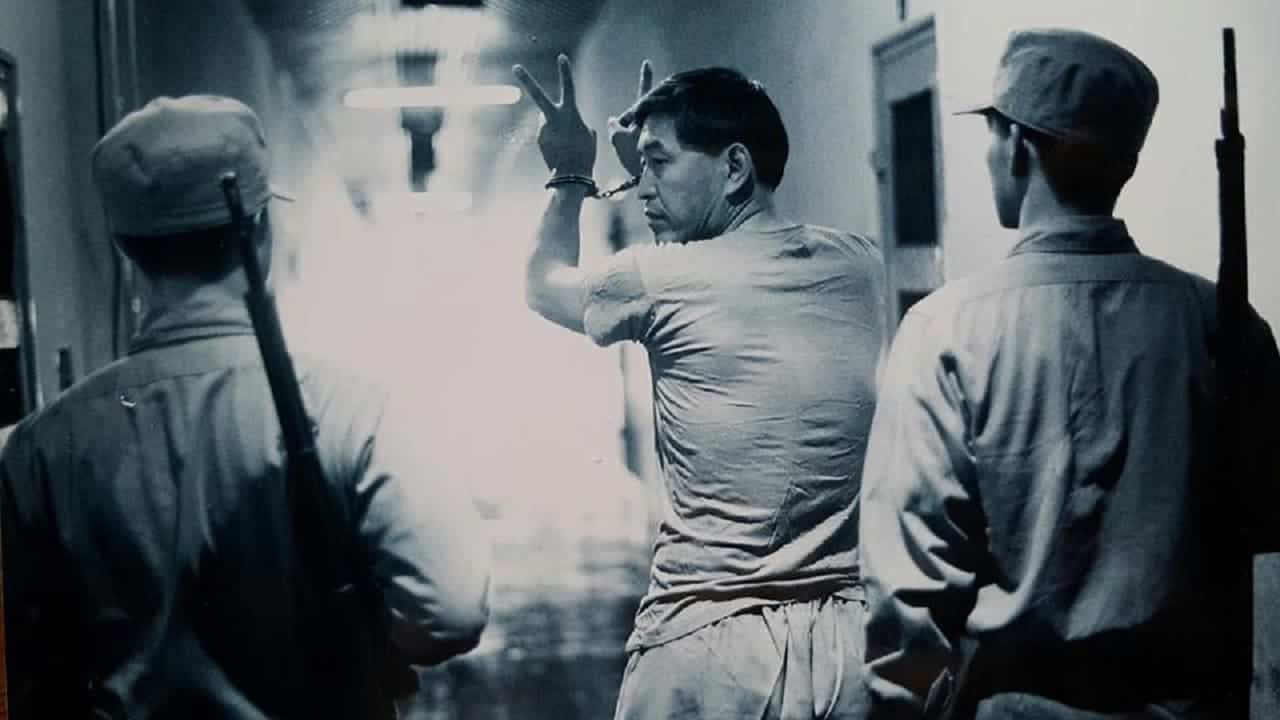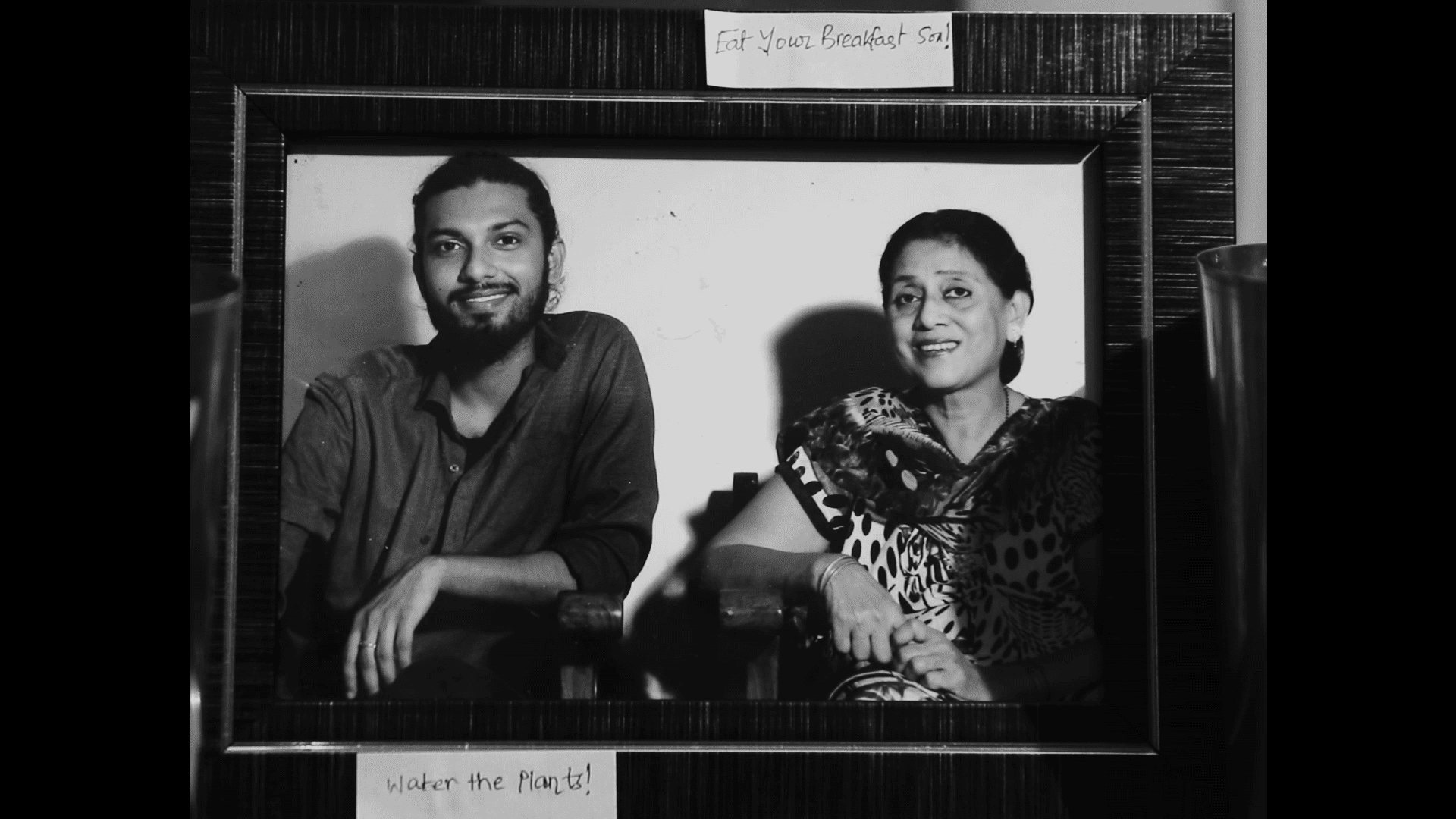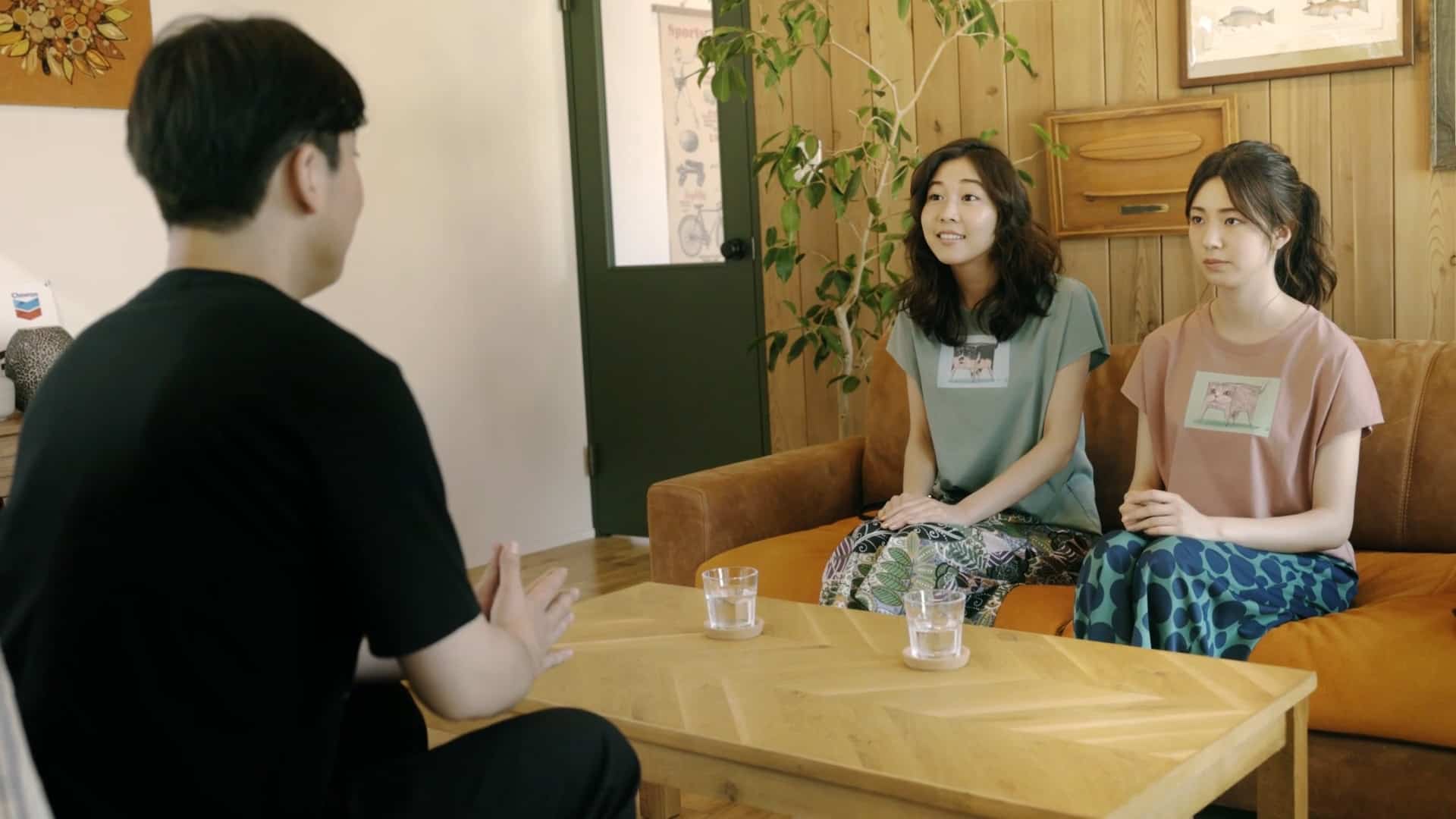In the early 2010s, two K-Dramas in the “Reply” series were released, throwback shows to life and times in the 90s that did quite well with the audiences. But it was with the third, and so far the last, “Reply 1988” in 2015, that the series saw most success. The show ruled the ratings when it aired and it is to its credit that even today, more than four years since its final episode aired, it is still the fourth highest rated Korean drama on cable television. This feat is doubly impressive when you take into consideration the fact that all the other shows in that list have been released after “Reply 1988” finished airing, some even as recently as 2020.
Buy This Title
“Reply 1988” is the story of five childhood friends who grew up and live on the same street in Ssangmun-dong, Seoul. Sung Sun-woo, the perfect student, Kim Jung-hwan, the quiet Mr. Cool of the group who has problems expressing his inner feelings accurately and Ryu Dong-ryong, who's more interested in girls and enjoying life than his studies, are all in the same class and get along well in their studies thanks to each other's help. Choi Taek, the quietest and in many ways simplest of the group, left his studies early on to pursue a career playing the board game Go, at which he is extremely proficient and is already representing his country in international tournaments. But the life of the group is Sung Deok-sun, the only girl of the group, who's not the brightest student, but more than makes up for it with her zest for life. These five are each other's support group, right there in every celebration and sorrow. Hence, they are caught completely unawares when, fuelled by her classmates' gossip, Deok-sun develops feelings for Sun-woo at the same time that Jung-hwan begins to feel the same way for Deok-sun, while it is also revealed that Taek harbours feelings for her too.
It is also the story of their families. Deok-sun's debt-ridden family includes her father Dong-il, a bank worker, her mother Il-hwa, elder sister Bo-ra who is an exemplary student already enrolled in the prestigious Seoul University, and younger brother No-eul. Deok-sun often finds herself struggling being the middle child. Sun-woo lives with her windowed mother Sun-young and baby sister Jin-joo. Jung-hwan's family consists of his father Sung-kyun who owns an electronics goods shop, his mother Mi-ran and elder brother Jung-bong, who is the eldest of the children on the street and is also not a bright student but tries his hardest to fulfil his parents' dream of seeing him go to college. The Kims used to be just as financially weak as the rest on the street until recently when they literally won a lottery, making them the richest on the street. Ryu Dong-ryong's father is the Dean of the school the boys go, whereas Choi Taek's father Moo-sung has dedicated all his adult life taking care of and providing for Taek after his wife's passing. Just like the five friends, the five families also work as their own support groups and are always present for each other in sickness and in health.

Lee Woo-jung's script, and Shin Won-ho's execution of it, is a great throwback to times when even if people's houses were much smaller, their hearts were far bigger. As a result, this is a show with a lot of heart, and all of it in the right places. The relationship between all the families feels so authentic, in the way that they share their food without invitations, or the way that they are always there for each other, happy in the other's happiness and worrisome and right by their side to help in their troubles, without ever the need to be prompted for it. If there's little or no food on one particular dinner table, that household still won't go hungry that night but would in fact eat a lot more than the others because all the other households will send food without being told to. If someone is hard on cash, there will be an envelope in the returned utensils without having asked, or if any child is unwell or needs to be taken to the hospital, chances are the neighbours will be by their side before the parents get there. The gossiping housewives, discussing everything from their children's futures to their own sex lives over soju and chores while sitting in the alley feels straight out of 80s real-life. A lot of it seems in stark contrast to lives and relationships in general today, where everybody is busy in their own little cocoons and rarely have time for themselves, let alone others. There's a lesson in there somewhere, but “Reply 1988” is too busy having fun to be preachy in any way.
Equally fun to watch and relatable is the strong friendship between the five friends. That unspoken connection which exists between the best of friends that lets each other know their hearts' deepest desires is accurately portrayed. The affection between the five, specially in the uninvited sharing of the food, the taking over of a friend's room even when in their absence, and particularly in the way the other four take care of Taek, is very infectious, making the audience feel almost like an intimate part of the group. Those of us who have been among a similar group of friends, we are now unable to spend such time with due to “life”, will particularly feel rather warmly for this adorable five. Even their celebrations are rather down-to-earth. Taek, for example, is clearly doing exceptionally well for himself but the only treat the friends ever seem to ask for on his successes is a pizza or ttoekbokki and a movie. Even when they are annoyed with each other for any particular reason, they'll still all sleep in the same room under the same blanket.
Thus, when the romances blossom, they do not fail to endear. Like with the previous “Reply” entries, “1988” also uses the gimmick of flash-forwards to keep they viewers guessing about who the leading lady ends up with but mercifully, they are not as time-consuming. Based on individual preferences of actors, it will leave the audiences rooting hopelessly for their favourite couples, which is why the ending is sure to be divisive for many. In addition to the central love triangle, the other romances are just as well-developed, with Sun-woo's in particular taking up a substantial amount of screen-time, and delightfully so. The odd-couple romance of Jung-bong and Deok-sun's friend Maggie is also well written.

The final relationship that is just as importantly explored is that of the parent and their child. This in particular is a very relatable exposition, in that the audience could just as well see themselves in one of the many varied depictions of this dynamic. Sun-woo, for instance, probably comes across as the most filial, as he knows his duty as the son of a widowed mother and brother to a baby sister. His mother clearly is not a good cook, a running joke throughout, but he'll still finish his lunchbox before returning home without complaints, not wanting to disappoint her. His reaction, thus, to finding out about his mother's part-time job at a bathhouse in the latter episodes feels fully justified. Deok-sun's parents take more care of Bo-ra because she's the brighter of the two and attending university, but they still show their affection for her in subtle ways, particularly the mother.
Bo-ra's relationship, on the other hand, with her father is one of the strong points of the narrative in the latter half, both unable to express their inherent deep feelings with words or actions. For Jung-hwan and his brother, they don't really know their parents very well, as Jung-hwan finds out in a wonderful sequence involving his mother Mi-ran attempting to read English. Jong-ryong's attitude, meanwhile, is defined by his starving for his parents' affection. Taek, on the other hand, has a father who looks after his every need but both of them are unable to say just how much they love each other. As a result, the segment with the pink gloves, and Moo-sung's tears afterwards, end up being very heartfelt.
Being set in 1988, it is also overflowing with nostalgia. Granted, that nostalgia might be much stronger for native Koreans, but that doesn't mean other views don't still have a great deal to reminisce about. We are introduced to the characters just as the country preps for the 1988 Seoul Olympics, an event that in one way or another affected the individual and the nation as a whole. The callback to a time when bananas and pineapples were a luxury, Walkmans ruled our world, Hollywood films could only be watched on rented VHS tapes and half the days were spent in membership study rooms will likely trigger fond memories.

This nostalgia also extends to the cinematography, which has a unique yesteryear quality to it and makes ample use of visual nods to people and objects of the time to invoke deja vu. Music also plays a big part in the children's lives and the show also makes great use of music to enhance that retro effect. The characters are particularly fond of the music of balladeer Lee Moon-sae and the show includes a brilliant voice cameo from the star, in the form of his return to hosting his extremely popular 80s radio show “Starry Night”, an important part of the friends' schedules. The original songs also have an old-school charm to them, of which Kim Feel's cover of Sanulrim's “Youth”, featuring original singer Kim Chang-wan, leaves an impression. The bleating goat sound effect is used to good comedic effect.
If there's any negatives, the biggest probably would be the length. With 20 episodes, most averaging between 90-110 minutes and the final couple nearly touching two hours, “Reply 1988” ends up being a big commitment to get into, specially if you're more accustomed to the 16-episodes, 70 minutes each K-Drama format. While it does make the most of its runtime though, some characters still feel a bit cheated on in terms of their storyline, with Dong-ryong probably being the most hard-done by. Being a key part of the clique, he doesn't get a lot of storyline to himself, save for a little consolation near the end. While other siblings also get ample content to chew on, Deok-sun's brother No-eul barely gets to register.
But these are minor niggles, because the show fully justifies its runtime and it is a joy to watch every single actor perform. For such a huge cast, there's not one performance that feels a let-down. It is, therefore, not too surprising that a lot of the younger actors have gone on to become big names now. The most obvious would be Ryu Jun-yeol, who's one of the hottest young properties in Korean cinema now, but was a fairly unknown when he appeared here. The quiet, stoic demeanour that he goes about with, holding all his feelings inside, is oddly appealing. Go Kyung-pyo, as Sun-woo, probably gets the most emotional moments of the young actors and he proves his worth in more scenes than one, be it his many scenes with his mother or one with Moo-sung in the jewellery store. Lee Dong-hwi has also become a steady presence in comedic roles and it is evident to see why in his portrayal of Dong-ryong.

Park Bo-gum was already making his mark before appearing in this and has since become one of the biggest names in K-Dramas. Surprisingly, he ends up being the actor with the best chemistry with almost every other actor, be it his friends or the adults, including his father, showing great emotional range in few scenes with him particularly. Singer/actress Hyeri is as much the life of the bunch as is her character Deok-sun. Her big-eyed charm almost immediately endears her, to the point of making the audience relate to the many emotions and experiences of her adolescent life. Ahn Jae-hong (now a leading man in his own right too) gives life to the awkward, oafish Jung-bong while Ryu Hye-young's Bo-ra, who spends most of the earlier episodes sibling-bickering with Deok-sun before getting an important part of the proceedings as the episodes count down, is particularly good.
Of the adult actors, Sung Dong-il and Lee Il-hwa return, making them the only ones to feature in all the “Reply” entries. Sung Dong-il, in particular, steals the limelight in his best performance in the series so far. His drink-loving Dong-il (all adult characters share the respective actors' real-life names) is a big softie at heart, buying from impoverish vendors even when his own family is in debt. Between his many fun scenes, it's the quieter ones that truly stand out, like the time he tries to bid Bo-ra goodbye as she goes off to university or the quiet dinner scene between the two. Kim Sung-kyun, after playing a student in “Reply 1994”, plays Jung-hwan's father here and gets ample time to shine. Choi Moo-sung starts off slow, but by the time the show reaches its conclusion, he manages to leave a very positive impression. Lee Il-hwa and Kim Sun-young are equally good, but of the female adult actors, Ra Mi-ran steals the show as the street's “Cheetah Ahjumma”. Some of her best scenes involve her menopausal storyline, as well as the part where she's asked to read English.
It's very interesting how, without the audience really noticing, the street location these families live on becomes such a character within itself that when it shows up in the final episode, it might just get you teary-eyed. For with the show and its characters, you have lived a good while on it yourself. Get aboard this time-machine, spend some time with a great group of friends and amazing neighbours and bask in the love and warmth they expel. These are the things that matter the most sometimes, things that we, in our hectic lives today, don't get to appreciate nearly enough.
Note: Watching this on Netflix might not be most ideal, since there's a lot of blurring of television screens, book covers, posters, cassette tapes, etc. due to image rights issues. While it takes a little bit of the nostalgia away and affects a few jokes, it doesn't take much away from the overall enjoyment of the show.


